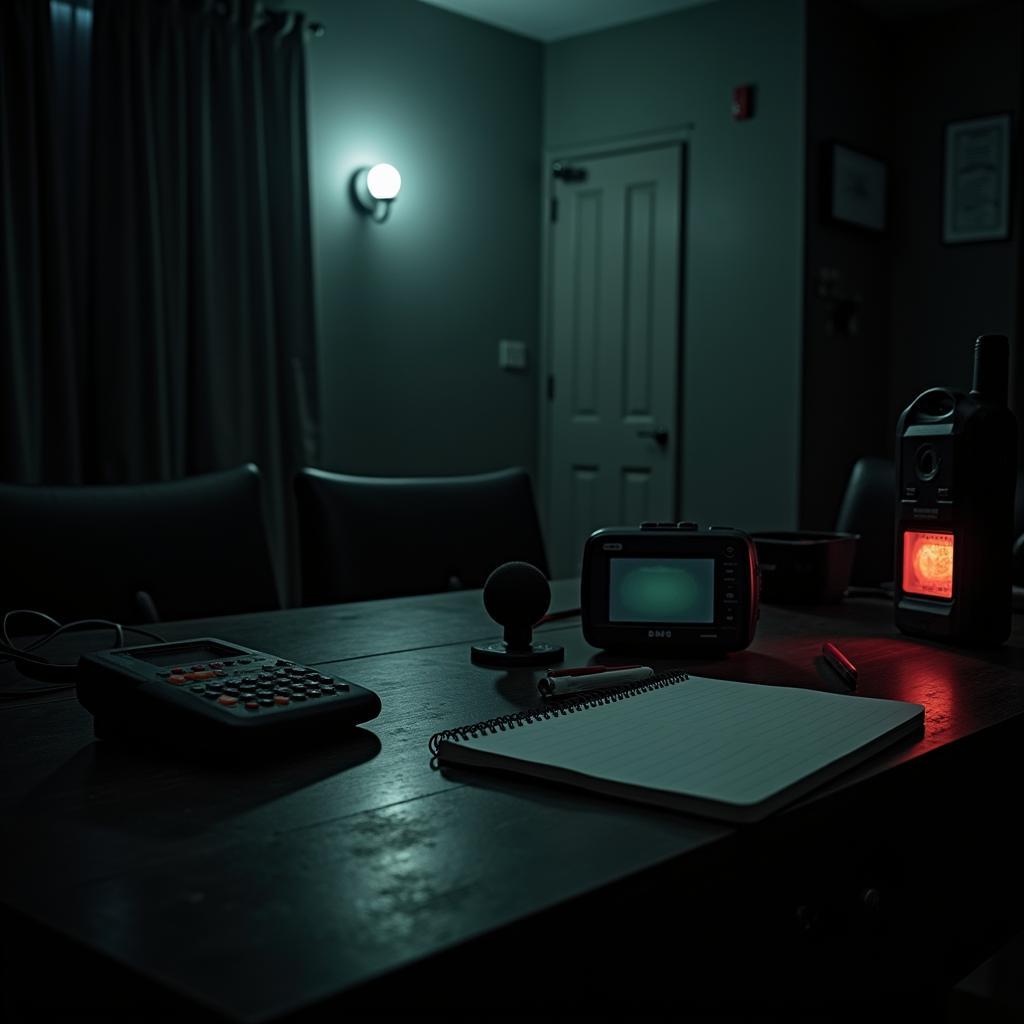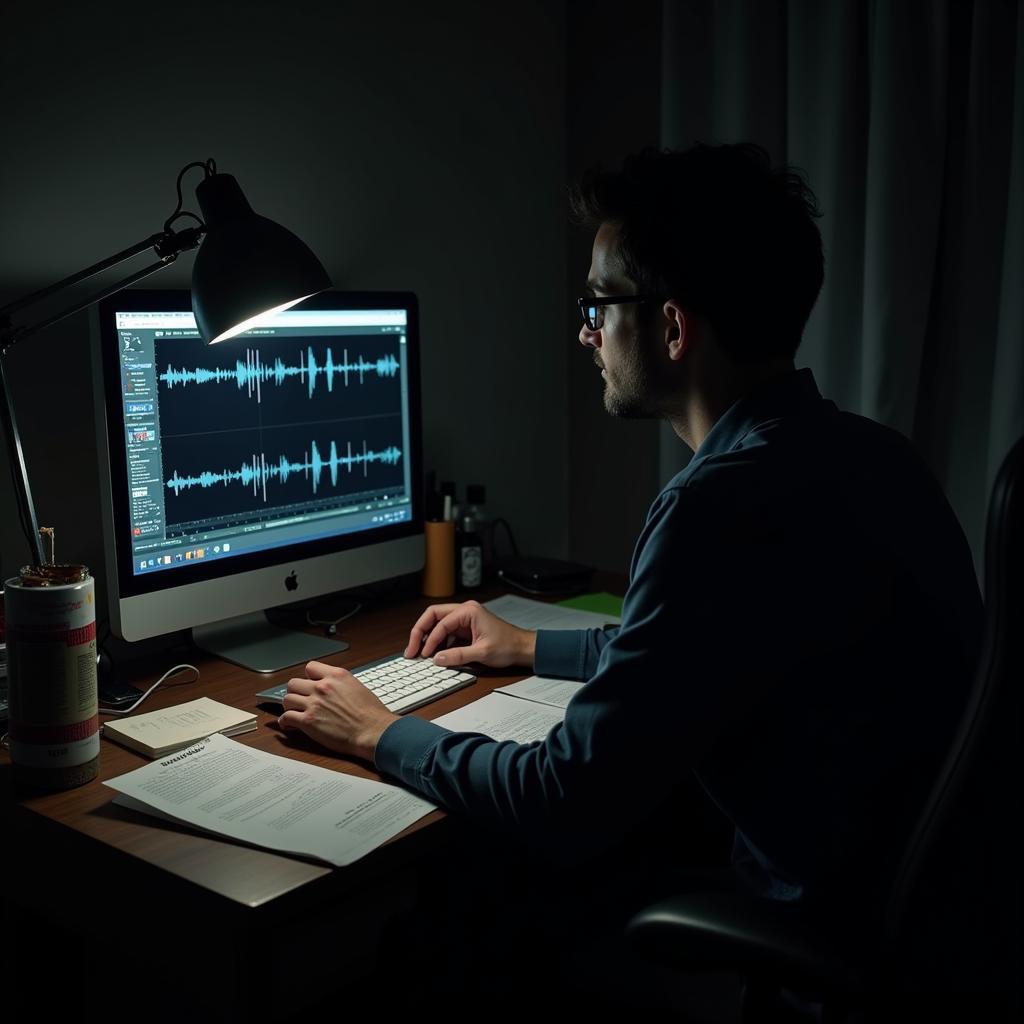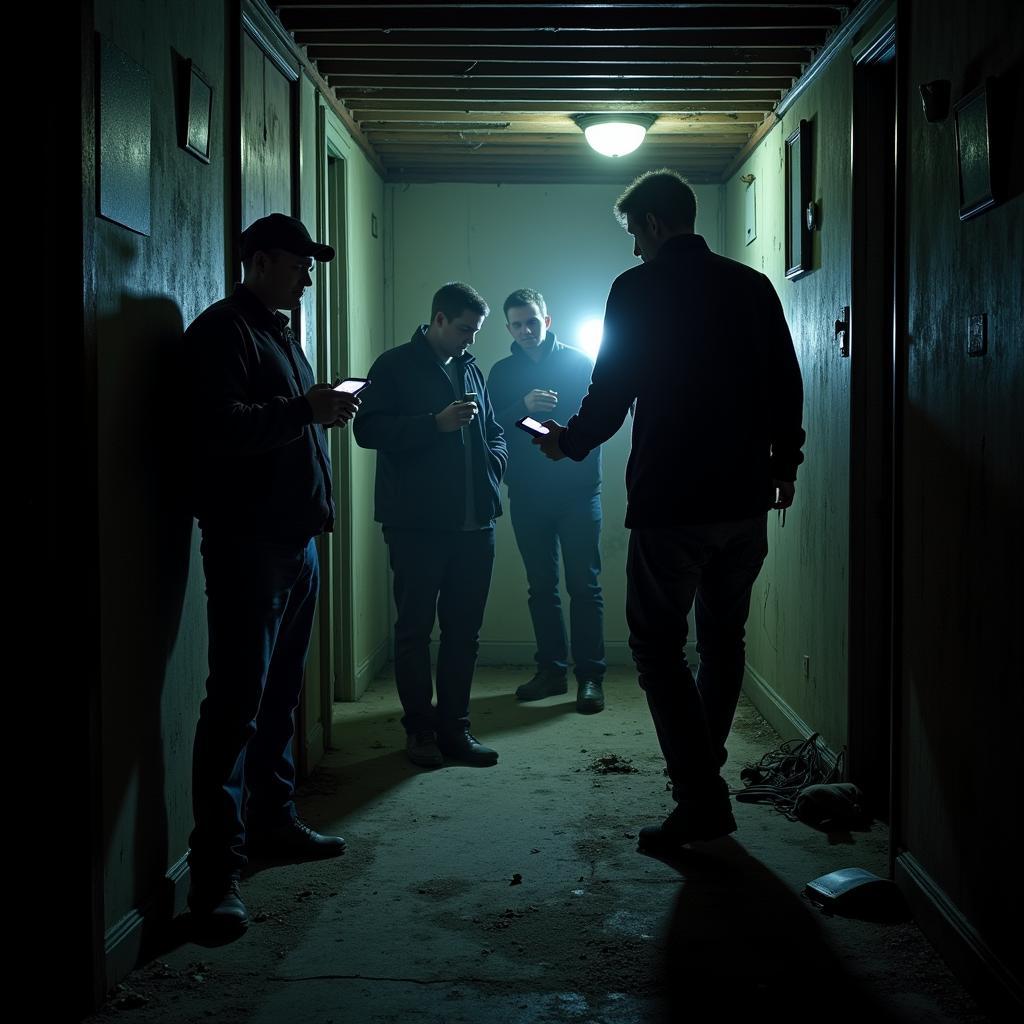The world of the paranormal is shrouded in mystery, speculation, and often, misinformation. “Practice Informed Research” is the bedrock of responsible paranormal investigation, allowing us to separate genuine phenomena from mere tricks of the light and shadows. It’s about approaching the unknown with a healthy skepticism, a thirst for knowledge, and a rigorous methodology.
 Paranormal Investigation Tools
Paranormal Investigation Tools
The Scientific Method: Our Guiding Light
While the subject matter might be supernatural, our approach must be grounded in the natural world. This is where the scientific method comes into play, guiding our investigations and ensuring objectivity:
- Observation: We begin by meticulously documenting any unusual occurrences, gathering eyewitness accounts, and analyzing any available evidence.
- Hypothesis: We formulate possible explanations for the observed phenomena, considering both natural and paranormal possibilities.
- Prediction: Based on our hypothesis, we predict what we should expect to find if our explanation is correct.
- Experimentation: We conduct controlled experiments, utilizing specialized equipment like EMF readers, thermal cameras, and audio recorders, to test our predictions.
- Analysis: We meticulously analyze the collected data, searching for patterns, anomalies, and correlations that either support or refute our initial hypothesis.
 Paranormal Researcher Analyzing Data
Paranormal Researcher Analyzing Data
This systematic approach, though seemingly at odds with the ethereal nature of the paranormal, provides a structured framework for gathering evidence and drawing conclusions. It safeguards against bias and ensures that our findings, whether they point towards a natural explanation or a truly unexplained phenomenon, are credible.
The Importance of Research Informed Practice
Imagine this: you’re investigating a supposedly haunted house, and you hear a faint whisper. Without research informed practice, you might jump to the conclusion that it’s a ghostly voice. However, with a foundation in research, you’d consider other factors:
- Environmental Factors: Could the “whisper” be wind whistling through a crack in the wall or the creaking of old pipes?
- Psychological Factors: Could the expectation of hearing something influence your perception, causing you to misinterpret a sound?
- Technological Malfunctions: Could the whisper be interference picked up by your audio recording equipment?
research informed practice emphasizes a critical examination of all possible explanations, ensuring that we don’t fall prey to confirmation bias – the tendency to seek out or interpret information in a way that confirms our preconceived notions.
Common Pitfalls in Paranormal Research
Even with the best intentions, Paranormal Researchers can fall into traps that compromise the integrity of their work. Some common pitfalls include:
- Lack of Control Groups: Without a control group – a baseline against which to compare our findings – it’s difficult to determine if something is truly anomalous.
- Small Sample Sizes: Drawing conclusions based on a limited number of investigations can lead to inaccurate generalizations.
- Anecdotal Evidence: While personal experiences can be intriguing, they are subjective and should not be the sole basis for conclusions.
- Confirmation Bias: As mentioned earlier, this is the tendency to favor information that confirms our existing beliefs, which can skew our interpretation of data.
 Paranormal Investigation Team
Paranormal Investigation Team
By being aware of these pitfalls, we can strive to avoid them, ensuring that our investigations are as objective and reliable as possible.
Conclusion
Practice informed research is not about debunking or disproving the paranormal. It’s about seeking truth, wherever it may lie, and doing so with a commitment to intellectual honesty and methodological rigor. It’s about approaching the unknown with a critical mind, an open heart, and an unyielding dedication to uncovering the mysteries that lie beyond our current understanding.